Are You Looking For a Solution To Your Diastasis Rectus Abdominis Condition In Greer, South Carolina?
Conveniently located off Interstate 85 in South Carolina
980 Batesville Rd Suite C Greer, SC 29651
Free parking available
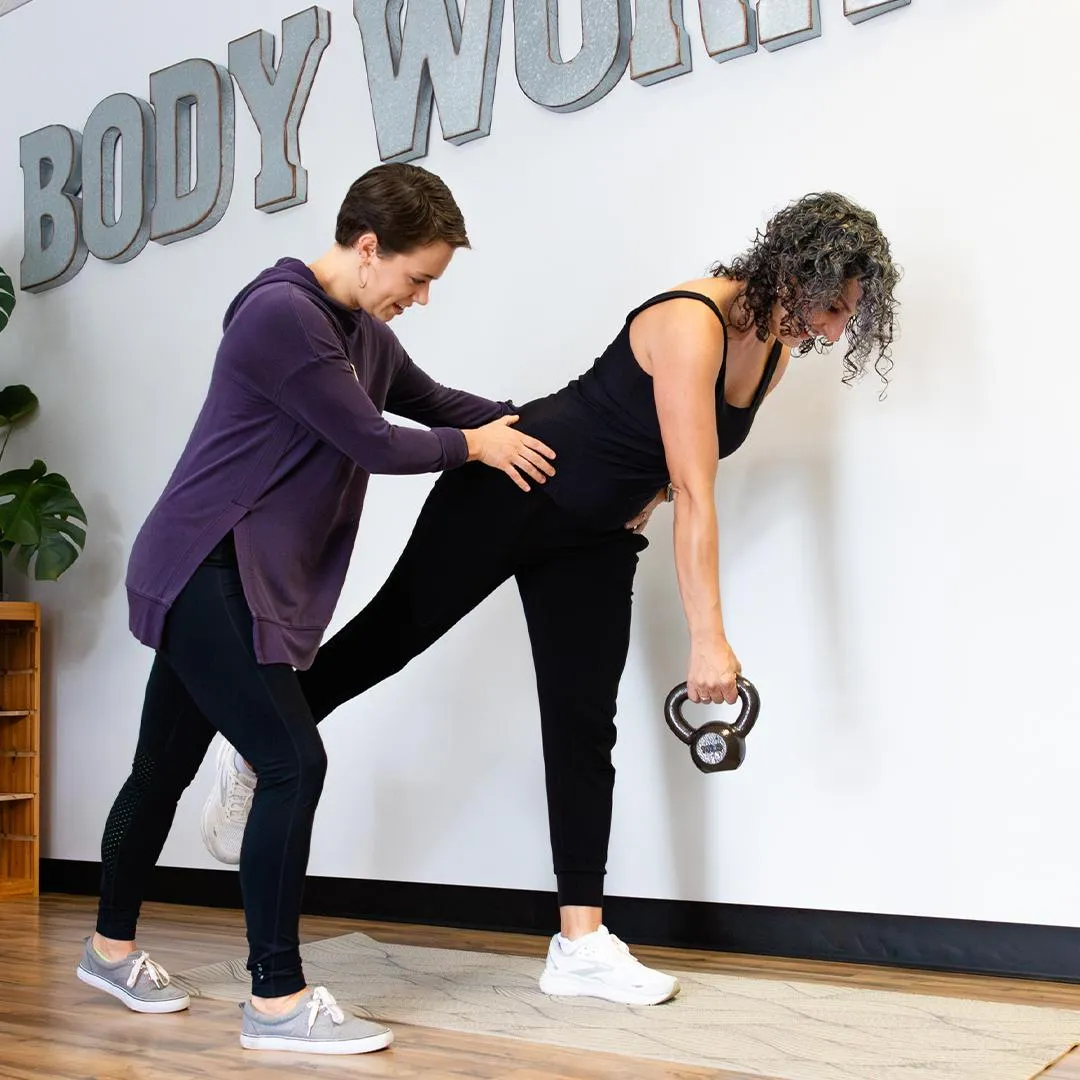
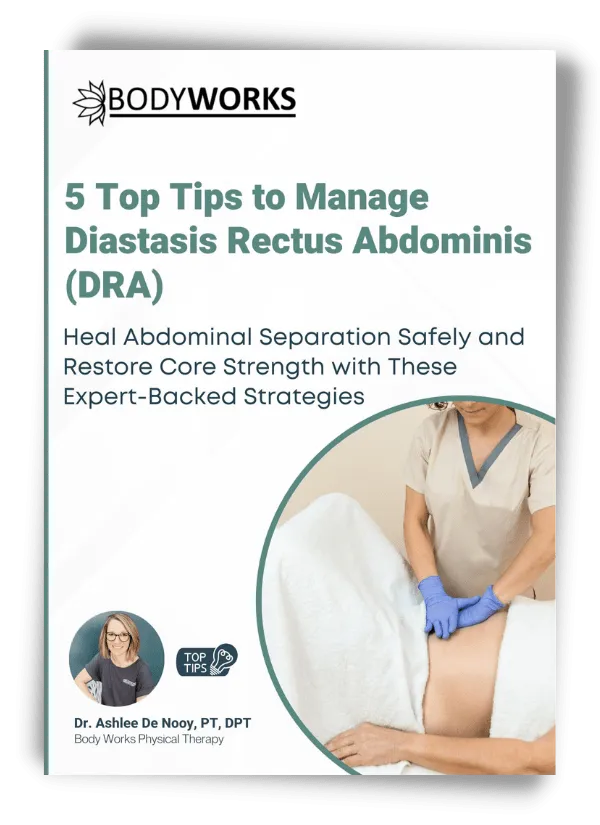
Download Your FREE Diastasis Rectus Abdominis Information Pack:
“5 Top Tips To Manage Diastasis Rectus Abdominis”
Click the button below to get your FREE Report
Does Any of This Sound Familiar?
Do you notice a persistent bulge in your abdomen that won’t go away, even after exercise or weight loss?
Are you struggling with back pain, poor posture, or core weakness, making daily activities more difficult?
Do you feel frustrated or self-conscious about your abdominal appearance, especially when wearing certain clothes?
Have you tried traditional core exercises but seen little to no improvement, or even worsening of your condition?
Are you tired of feeling discomfort or instability in your core, especially when lifting, bending, or getting up from a seated position?
Have you been told that surgery is your only option, but you're looking for natural, non-invasive ways to heal?
If you answered YES to any of the above, you're not alone. At Body Works Women's Health & Wellness we hear stories like this every single day. It may be time to explore how specialized therapy can help you heal your diastasis and regain core strength.

Body Works Women's Health & Wellness
Greer, South Carolina
Still Feeling A Little Confused About Your Condition And Don't Know What To Do?
#1 Option (👍 most popular)

#2 Option - Send Us a Message

#3 Option - Book Appointment

What Causes Diastasis Rectus Abdominis… And Why Isn’t it Healing on its Own?
Diastasis Rectus Abdominis (DRA) occurs when the abdominal muscles separate along the midline, often due to increased pressure from factors like pregnancy, weight gain, or specific types of physical strain. This separation weakens the core and reduces stability, impacting posture, balance, and even breathing.
Common symptoms include a visible bulge along the abdomen, core weakness, back pain, and difficulty with movements that engage the core. Without targeted treatment, the separation and weakened support can persist, making it harder to regain strength and fully resolve symptoms over time.

Struggling with Core Strength and Stability?

Not sure who to ask?
Not sure what to do next?
Not sure who can help?
Please fill out the form below and chat with one of our team members about your right next step
The Body Works Women's Health & Wellness Diastasis Rectus Abdominis Program - – Rebuild Your Core, Restore Your Strength
Step 1 - Comprehensive Evaluation and Diagnosis
Our first step is a thorough evaluation of your symptoms, medical history, and core function.
This includes a detailed examination of your abdominal muscles to understand the extent of separation and assess the impact on your core strength, posture, and overall stability.
We aim to gain a clear understanding of your condition so we can create a personalized treatment plan tailored to your needs.
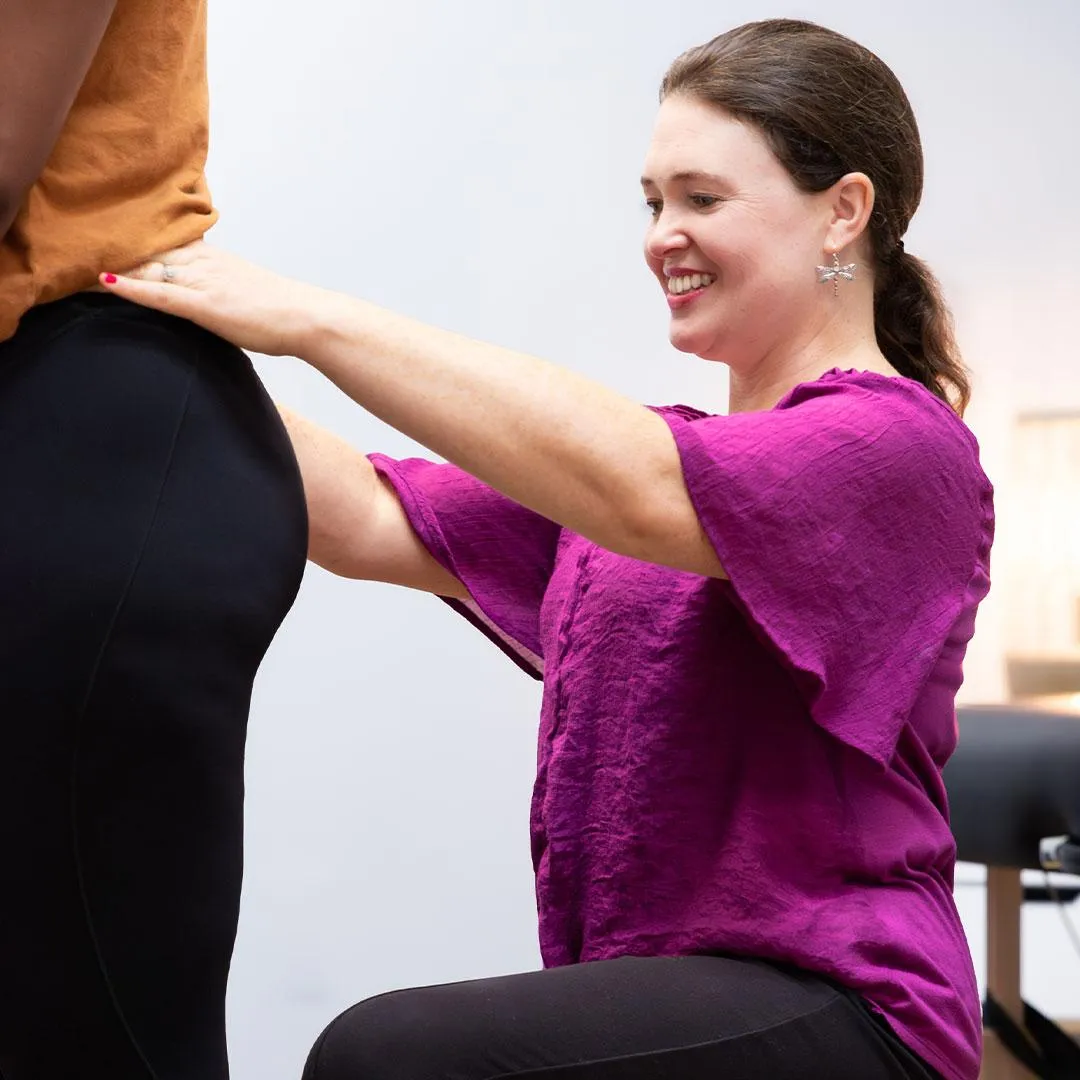
Step 2 - Customized Treatment Plan
Based on the evaluation, we develop a targeted treatment plan to support healing and strengthen your core.
This may involve specific core exercises, postural adjustments, lifestyle recommendations, and other non-invasive techniques designed to safely and effectively address your Diastasis Rectus Abdominis.
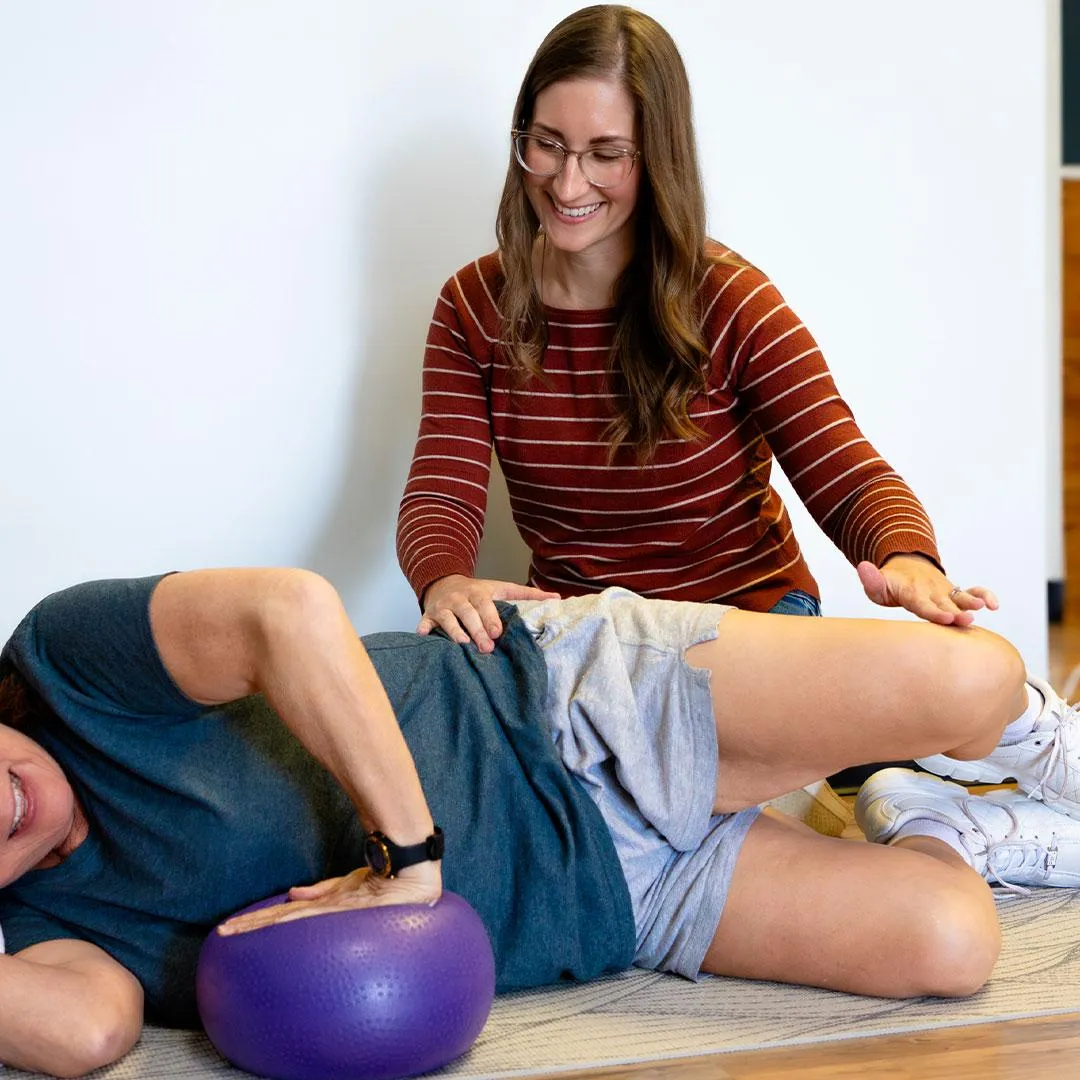
Step 3 - Long-Term Strength and Prevention
Our final step focuses on sustained recovery and prevention. We guide you through gradual progressions to ensure your core remains strong and resilient over time, empowering you to move confidently and engage in daily activities with ease.
We’ll also provide tools and guidance to prevent future issues, helping you maintain core stability and live life without limitations.
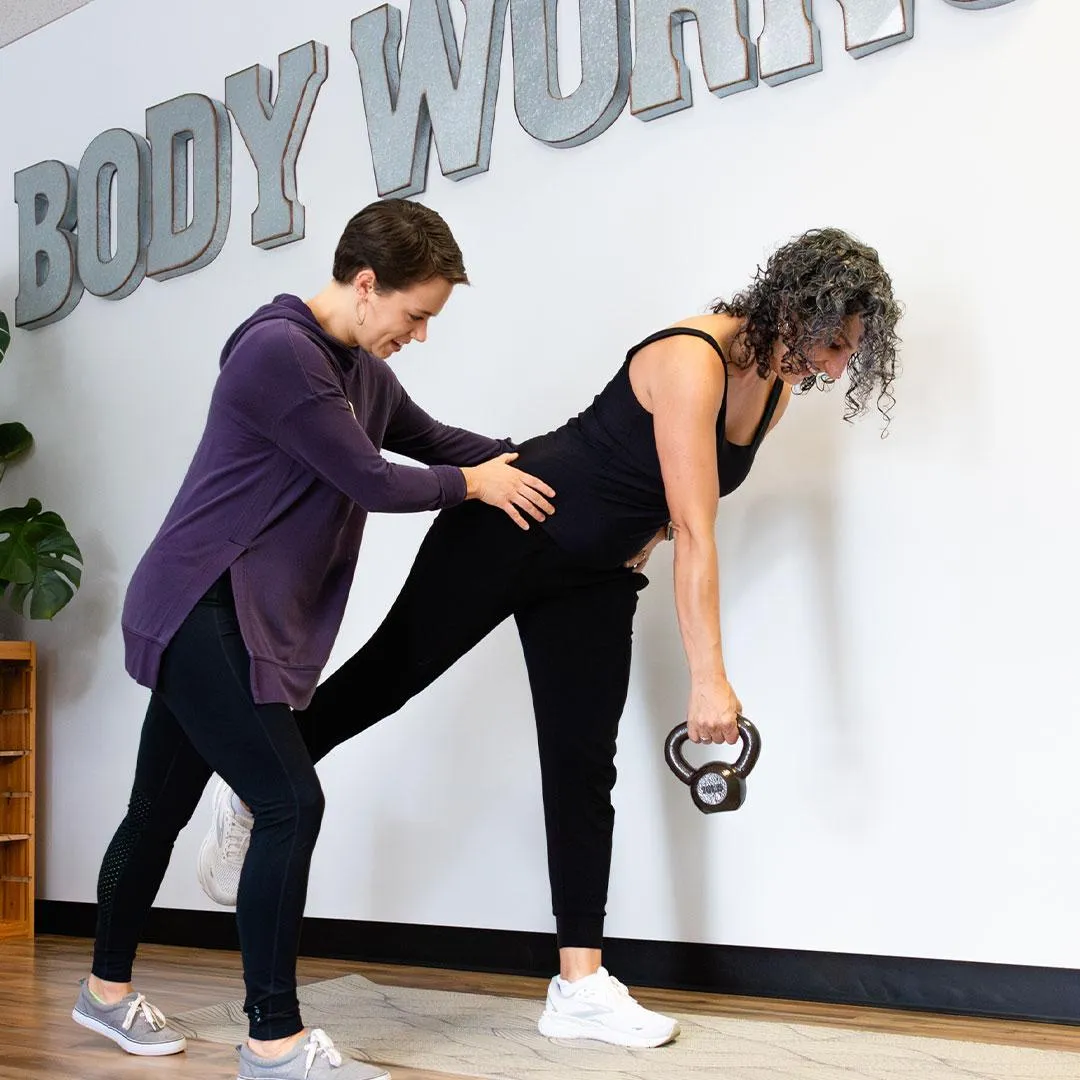
Is The Diastasis Rectus Abdominis Recovery Program Right For You?
Our expert team of physical therapists at Body Works Women's Health & Wellness specialize in treating Diastasis Rectus Abdominis, helping countless women regain core strength and confidence in their bodies.
Here’s just a few ways our team can help you:
We can tell you on Day ONE what’s causing your abdominal separation, why it’s happening, and how to heal it.
We’ll quickly get to the root cause of your diastasis and provide a personalized plan—often within the first 20 minutes of your evaluation.
We can help you restore core strength and stability, allowing you to feel more energized and free in your daily activities.
We can help you avoid the need for surgery or other invasive treatments with effective, natural therapies.
We’ll keep you from unnecessary doctor’s visits and ineffective treatments, focusing on long-term recovery.
We’ll help you reclaim back the quality time and confidence that diastasis may have taken away from your everyday life.
We can guide you to a stronger, more functional core, allowing you to stay active and live life with confidence.
What's next? You've got a decision to make - another month gone by without solving your Diastasis Rectus Abdominis problem, or are you ready to get back to doing the things you love?
Is Diastasis Rectus Abdominis Slowing You Down? Take Us Up on One of Our Free Options
Option #1 (👍 most popular)

Option #2


From Consultation to Treatment
What to Expect at Your First Visit to Body Works
We're excited to see you at your appointment! We want to make sure you feel comfortable and well-informed, so don't hesitate to ask us any questions about our treatments, our clinic, or even our payment options. Our goal is to help you get back to living your life free of pain, so let's work together to make that happen!
Discuss your story and health goals
Complete assessment
Discover your options
Start a custom treatment plan


Here's Why Over 1,000+ Women Choose Body Works Women's Health & Wellness

Specialised Expertise: Our clinic offers specialised care from highly-trained physical therapy in various fields like sports rehab and chronic pain management.
Comprehensive Approach: We provide holistic treatment plans combining manual therapy, exercises, and cutting-edge technology for a well-rounded approach.
Cutting-Edge Facilities: Equipped with state-of-the-art facilities and advanced equipment to support patients' recovery.
Proven Track Record: Our clinic's reputation is built on successful patient outcomes and positive feedback, fostering a supportive environment for rehabilitation.
Frequently Asked Questions About Diastasis Rectus Abdominis
What is Diastasis Rectus Abdominis?
Diastasis Rectus Abdominis (DRA) is the separation of the two halves of the abdominal muscles, particularly along the midline (linea alba). This condition is most commonly seen during and after pregnancy but can also occur in men and non-pregnant women due to factors like improper lifting, rapid weight gain, or intense abdominal strain.
What causes Diastasis Rectus Abdominis?
DRA is often caused by excessive pressure or strain on the abdominal muscles. During pregnancy, the growing uterus stretches the abdominal wall, which can cause the muscles to separate. Other causes include obesity, improper exercise techniques, and heavy lifting. Weakness in the connective tissue can also play a role.
What are the symptoms of Diastasis Rectus Abdominis?
Common symptoms of DRA include:
- A visible bulge or “pooch” in the abdomen, especially when straining.
- Weakness or instability in the core.
- Lower back pain.
- Poor posture.
- Difficulty lifting objects or engaging in certain physical activities.
- In some cases, pelvic floor dysfunction may also be associated.
How is Diastasis Rectus Abdominis diagnosed?
A healthcare professional or physical therapist can diagnose DRA through a physical exam. They will have you lie down and perform a simple test by placing their fingers along the midline of your abdomen and having you lift your head. The amount of separation between the muscles will determine if DRA is present.
Can Diastasis Rectus Abdominis be treated without surgery?
Yes, in most cases, DRA can be treated without surgery. Physical therapy that focuses on core-strengthening exercises, especially those targeting the transverse abdominis, can help reduce the separation and improve core stability. Lifestyle modifications and proper body mechanics also play a key role in healing.
What exercises should I avoid if I have Diastasis Rectus Abdominis?
Exercises that place excessive strain on the abdominal muscles, such as crunches, sit-ups, planks, and heavy lifting, should be avoided until the gap has healed. These activities can worsen the separation and delay recovery.
How long does it take to recover from Diastasis Rectus Abdominis?
Recovery time varies depending on the severity of the separation and how consistently you follow a treatment plan. With targeted exercises and therapy, most people see improvement within 8 to 12 weeks. However, severe cases may take longer to heal.
Is surgery ever necessary for Diastasis Rectus Abdominis?
Surgery is usually only considered in severe cases where non-surgical treatments have failed to improve symptoms, or if there is a significant amount of excess skin or herniation. Abdominoplasty (tummy tuck) may be an option to repair the muscles in extreme cases.
Will wearing an abdominal binder or support belt help with Diastasis Rectus Abdominis?
An abdominal binder or support belt may provide temporary support and help reduce discomfort, but it’s not a long-term solution. To effectively heal DRA, targeted exercises and therapy to strengthen the core are necessary.
Can Diastasis Rectus Abdominis cause other health issues?
Yes, if left untreated, DRA can lead to other complications such as chronic back pain, pelvic floor dysfunction, hernias, and postural problems. It can also make everyday tasks, like lifting or exercising, more difficult.
Can Diastasis Rectus Abdominis heal on its own?
In some mild cases, DRA may improve on its own, especially after pregnancy. However, in many cases, targeted core exercises and physical therapy are necessary to fully heal the condition and prevent further complications.
Can I prevent Diastasis Rectus Abdominis during pregnancy?
While it’s not always possible to completely prevent DRA during pregnancy, there are steps you can take to minimize your risk:
- Engage in safe, doctor-approved core strengthening exercises during pregnancy.
- Practice proper body mechanics when lifting.
- Avoid exercises that put excessive strain on the abdominal muscles, like crunches or heavy lifting.
- Wear supportive maternity belts if recommended by your healthcare provider.
Please note that these FAQs provide general information and should not replace personalised advice from a qualified healthcare professional. It is important to consult with a trusted physical therapist to assess your individual case and determine the most suitable treatment plan for your Diastasis Rectus Abdominis.
Frustrated With Your Diastasis Rectus Abdominis Pain?

Not sure who to ask?
Not sure what to do next?
Not sure who can help?
Please fill out the form below and chat with one of our team members about your right next step

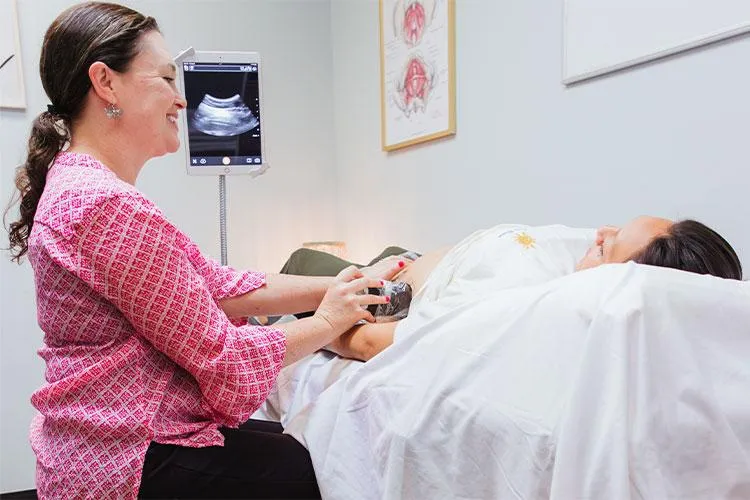
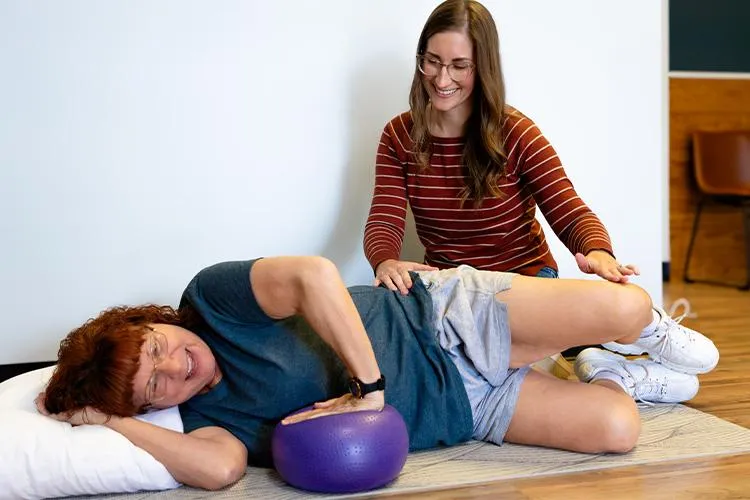
Where To Find Body Works Women's Health & Wellness

If you have any questions before scheduling an appointment or for general inquiries, please use the contact us button below. Our team will promptly reach out to assist you.
Opening Hours
Monday: 7:30am -6pm
Tuesday: 7:30am-4pm
Wednesday: 8am -5:30pm
Thursday: 7:30am - 3pm
Friday: 7:30am - 3pm
Saturday: Closed
Sunday: Closed

